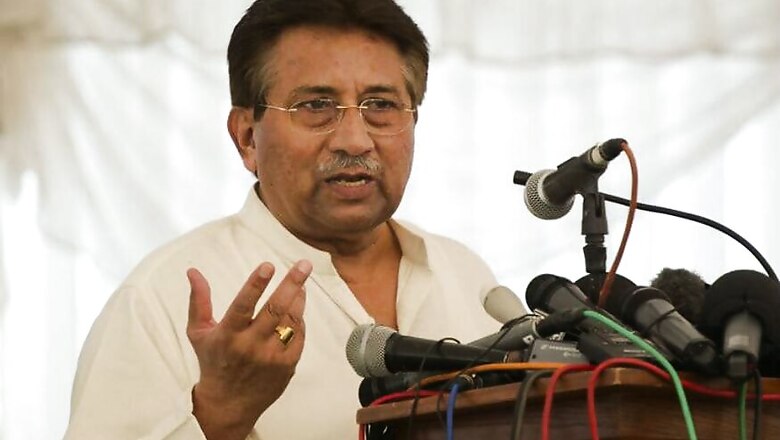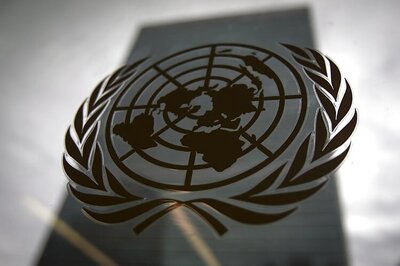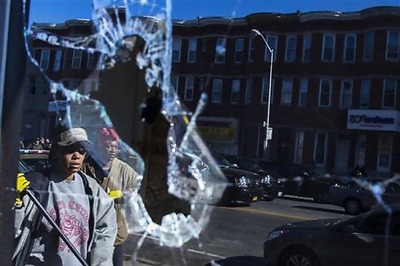
views
Islamabad: With the powerful Pakistan Army publicly backing former dictator Pervez Musharraf after he was sentenced to death for treason, Prime Minister Imran Khan's government has decided to defend the retired General during the hearing of an appeal against the "unfair" verdict.
Former Pakistan President and military ruler Musharraf was sentenced to death in absentia on Tuesday for high treason following a six-year legal case. He has been living in Dubai since 2016 after Pakistan's Supreme Court lifted a travel ban allowing him to leave the country to seek medical treatment.
A three-member special court here convicted 76-year-old Musharraf of violating the Constitution by unlawfully declaring emergency rule while he was in power, in a case that had been pending since 2013.
Following Musharraf's sentencing, the Pakistan Army said that its former chief Gen (retd) Musharraf can "never be a traitor" and the verdict against him has been received with "lot of pain and anguish" by Pakistan Armed Forces personnel.
"An ex-Army Chief, Chairman Joint Chief of Staff Committee and President of Pakistan, who has served the country for over 40 years, fought wars for the defense of the country can surely never be a traitor," Pakistan Army spokesman Maj Gen Asif Ghafoor said in a statement.
"The due legal process seems to have been ignored including constitution of special court, denial of fundamental right of self defence, undertaking individual specific proceedings and concluding the case in haste," he said.
"Armed Forces of Pakistan expect that justice will be dispensed in line with Constitution of Islamic Republic of Pakistan," Ghafoor stressed, piling pressure on the government of Prime Minister Khan.
The verdict made Musharraf the first military ruler to receive the capital punishment in Pakistan's history.
Alarmed by the military's public statement, Prime Minister Khan, who was in Geneva, quickly deployed two of his trusted aides to assuage the Army to say that the government would defend the self-exiled, ailing ex-president during the hearing of an appeal to be filed on his behalf.
"I will defend the law in the case but not any individual," said Attorney General Anwar Mansoor Khan in the late-night joint press conference that he addressed along with Special Assistant to the Prime Minister on Information Firdous Ashiq Awan.
He said former president Musharraf had not been given the right of fair trial during the case tried in a special court and the judgement was announced in absentia without recording statement of the accused.
Musharraf has argued that the case was politically motivated and that the actions he took in 2007 were agreed by the government and Cabinet. But his arguments were turned down by the courts and he was accused of acting illegally and abrogating the Constitution.
Khan said the verdict raised questions about the "urgency in pronouncing the judgement when Mr Musharraf was in critical condition in ICU" in Dubai.
"There is no question that a person who had committed treason must be punished but in this case the right of fair trial guaranteed under the Constitution was not ensured. A trial should not just be fair but also seen to be fair," he asserted.
The Attorney General also pointed out that one of the major flaws in the case was that those who might have assisted Musharraf in enforcing emergency were not made a party in the case, Dawn newspaper reported.
The charges against Musharraf stem from his imposition of a state of emergency in November 2007, after which dozens of top judges were placed under house arrest or sacked, sparking widespread street protests by lawyers.
He said if Musharraf was given a chance to record his statement and present his witnesses, he might have come up with the "logical reasons" in support of the emergency he had proclaimed in 2007.
Asked if he committed contempt of court by declaring Musharraf's trial as "unfair" during his press conference, the attorney general said: "Once the verdict is announced it becomes a public document and everyone can comment on it."
Prime Minister Khan's top aide, Awan said some people were celebrating the special court's verdict against Gen Musharraf and hoping for a clash between the institutions.
"The same people who can be seen rejoicing on TV screens today were the same who had taken oath from Musharraf in 2009," she said.
She added it was important for everyone to realise that in the current situation, it was imperative for all institutions to be on the same page.
Awan said that Pakistan Army had rendered countless sacrifices for the country. She also appreciated the Pakistan Army for supporting the civilian government, media reports said.
Musharraf's sentencing was highly significant in Pakistan where the powerful military has ruled the country for nearly half of its 72-year history.
Meanwhile, Musharraf has expressed disappointment over the court's decision and said he will respond after consulting his lawyers, Geo News reported from Dubai.
Quoting sources, the report said Musharraf was discharged from hospital but his health was still deteriorating.
Musharraf's All Pakistan Muslim League (APML) said the legal requirements for the verdict were not fulfilled and the decision was one-sided.
APML leader Malik Mubashir said that Musharraf was ready to record the statement in Dubai and the court ruled without hearing his arguments.
"Following the advice of lawyers, our future course of action will be finalised and the decision challenged," he added.




















Comments
0 comment